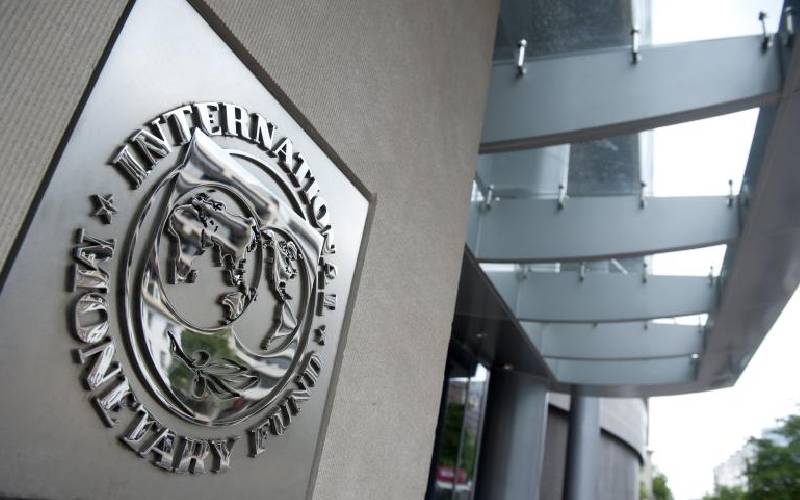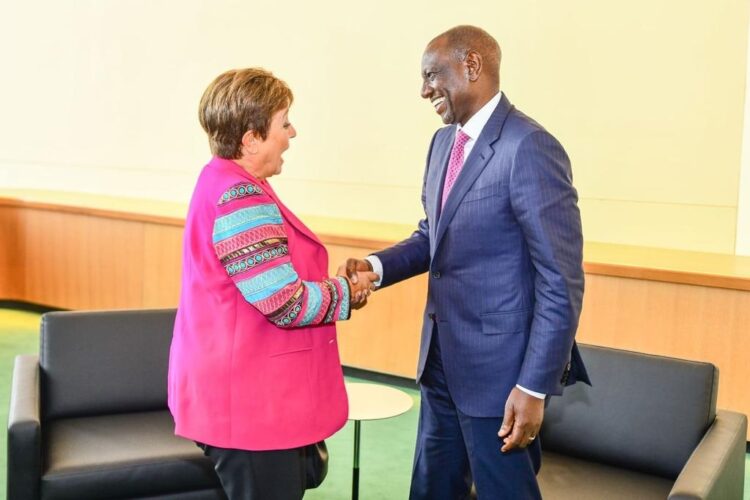Kenya’s Tax Tightrope: Navigating the Path to IMF Loan Approval
Kenya stands at a critical financial crossroad, balancing on the tightrope of increased taxation and international financial aid ( IMF loan conditions ).
As the country grapples with the implications of the Finance Bill 2024, an intriguing question arises: How does the increase in taxes correlate with the substantial Ksh575 billion loan from the International Monetary Fund (IMF)?
This pivotal issue forms the crux of ongoing debates and discussions, shedding light on Kenya’s fiscal strategy and its relationship with global financial bodies.
Foreign Affairs Principal Secretary (PS) Korir Sing’oei recently underscored the significance of the Finance Bill 2024 in securing the IMF loan conditions during a press briefing amid President William Ruto’s state visit to the United States.
The PS elaborated that the proposed tax measures within the bill are central to the IMF’s willingness to release the much-needed funds. This article explores the complex dynamics at play, examining the underlying factors and potential consequences for Kenya’s economy.

The Tax-Loan Correlation: An In-Depth Look
PS Korir Sing’oei emphasized that the IMF’s 7th Review, which determines the release of the Ksh575 billion loan, heavily depends on Kenya’s ability to enhance its revenue through increased taxes.
The IMF, along with the World Bank, requires Kenya to demonstrate its capacity to meet international debt obligations via robust domestic revenue collection. This conditionality aims to ensure financial stability and accountability.
The Finance Bill 2024 outlines several tax hikes aimed at bolstering Kenya’s revenue streams. However, these measures face scrutiny and potential rejection in Parliament, adding a layer of uncertainty to the loan’s approval. The PS acknowledged this complexity, noting the protracted negotiations and deliberations between Kenya and the IMF.
The IMF’s Reluctance and Legislative Hurdles
The IMF’s hesitance to disburse the loan before the Finance Bill becomes law reflects its cautious stance. The global lender’s reluctance stems from the bill’s parliamentary journey, where proposed tax hikes might be altered or rejected. This legislative uncertainty underscores the intricate relationship between national policy-making and international financial support.
PS Korir expressed frustration over the stringent conditions imposed on African countries, including Kenya, when accessing foreign loans. This sentiment highlights a broader discourse on the need for fairer credit terms for African nations.
During a forthcoming bilateral meeting, President Ruto plans to discuss these issues with US President Joe Biden, advocating for a more equitable approach to international lending.
The Broader Implications for Kenya
The outcome of this fiscal maneuvering carries significant implications for Kenya’s economic landscape. Successfully securing the IMF loan through the implementation of increased taxes could stabilize Kenya’s financial situation, providing much-needed funds for development projects and debt servicing.
Conversely, failure to pass the Finance Bill might delay or derail the loan, exacerbating financial challenges. Also, the proposed tax hikes could also have a direct impact on individual finances.
While the IMF has cited delays due to recent flood crises across Kenya, the overarching narrative remains one of strategic financial management. The interplay between domestic policy adjustments and international financial relations will continue to shape Kenya’s economic trajectory.
What are your thoughts on the correlation between increased taxes and international financial aid? Share your opinions and join the discussion below!





















